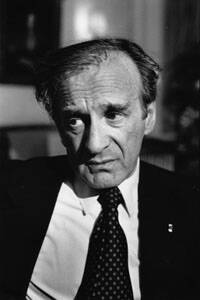As I've tracked the news about terrorists advancing in Iraq and Nigeria (and now Syria), and read accounts of their wicked acts of murder and torture, it's been hard to go about writing as usual. I've felt compelled to stop and pay attention, to pray, and to turn to the wisdom of others.
I've found myself taken by the words of Elie Wiesel, who in Night wrote:
I remember: it happened yesterday, or eternities ago. A young Jewish boy discovered the Kingdom of Night. I remember his bewilderment, I remember his anguish. It all happened so fast. The ghetto. The deportation. The sealed cattle car. The fiery altar upon which the history of our people and the future of mankind were meant to be sacrificed . . . It is in his name that I speak to you and that I express to you my deepest gratitude as one who has emerged from the Kingdom of Night. We know that every moment is a moment of grace, every hour an offering; not to share them would mean to betray them.Our lives no longer belong to us alone; they belong to all those who need us desperately.








